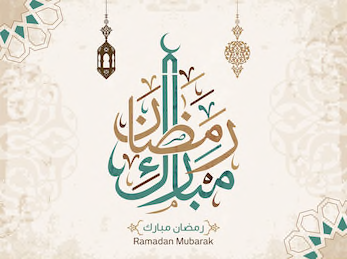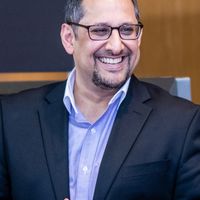Dr. Munir Jiwa is Founding Director of the Center for Islamic Studies at the GTU.
Our Interconnectedness
In this time of heightened uncertainty, our precariousness and fragility can find comfort and hope in our interconnectedness and interdependency. As we begin the blessed month of Ramadan, it will be one like no other in our time. Muslims, like many in other religious traditions, are finding new ways of remaining together apart, and online. The unprecedented and devastating spread of the deadly novel coronavirus, COVID-19, has created new ways of collective being, an altered sense of time, space and place, and different rhythms of life that beat back and forth, fast and slow, with different intensities and emotions.
Amid the myriad of rules and regulations to which we continue to adapt, we share new vocabularies, new bodily, social and spatial practices that are global, even as they are experienced in different ways locally. Our rituals of everyday life have changed. We shelter in place, stay at home, self-isolate, quarantine, practice social and physical distancing, in hopes of saving lives and "flattening the curve."
COVID-19, has created new ways of collective being, an altered sense of time, space and place, and different rhythms of life that beat back and forth, fast and slow, with different intensities and emotions.
We realign and learn how to manage these new ways of being with ourselves, our families, our communities, our work, with other creatures, with the environment, online and in the world. We ask with more urgency and reflection about who matters, what matters, who is considered essential, what is considered essential. We are heartbroken to know so many who must be hospitalized and whose loved ones can’t visit them, or of the elderly, especially in care homes who might feel isolated, or those who cannot bury their loved ones who have died. We witness the heroes on the frontlines who risk their lives — from healthcare workers who attempt to save lives to countless others who make everyday life possible, who feed, house, and comfort others, who transport and deliver goods, and keep us safe.
As we navigate this pandemic, let us center our interconnectedness by finding ways to serve others and by attending to inequalities, local and global. As we continue to practice self-care, let us also remember and care for the most vulnerable among us with justice, patience, empathy, love, generosity, compassion and kindness.
As we continue to practice self-care, let us also remember and care for the most vulnerable among us with justice, patience, empathy, love, generosity, compassion and kindness.
As many of the privileged experience vulnerabilities in new ways, they might express their fears of ill-health or mortality by referring to this pandemic as the great equalizer or leveler. But the poor and vulnerable — often people of color — remind us that though we are equal before God, we are not always treated so by each other. Refugees, im/migrants, victims of ongoing wars and violence, the displaced, the orphans, the undocumented, the homeless, the unemployed, the hungry, the abused — these people tell different stories often unheard. We have to contend with the urgency of our moment, the great loss of human life, and pandemic politics and privilege, various media and online platforms, with the enduring questions of rights, responsibilities and justice.
While COVID-19 has our rare global attention, it also reminds us that it cares little about who is inflicted and affected. Yet, we also have a rare global life-affirming moment to think more about our shared humanity, the environment that begs us to change our destructive ways, and to address and heal the inequalities, inequities, and injustices that stare us in the face.
We have a rare global life-affirming moment to think more about our shared humanity, the environment that begs us to change our destructive ways, and to address and heal the inequalities, inequities, and injustices that stare us in the face.
As the month of Ramadan begins, so many of us have had to reconcile and accept that we will not be able to physically attend the mosque this Ramadan standing shoulder to shoulder in prayer, or break our fasts together, a time when many make extra efforts of coming to the mosque to experience the love and beauty of this sacred time in community. We continue to keep in our hearts those who cannot practice their faith freely due to Islamophobia, religious intimidation and persecution. But there is also so much hope in knowing that we are united in our efforts of fulfilling our religious obligations with a renewed sense of commitment, continuity and purpose.
Ramadan, the 9th month of the Islamic lunar calendar, is the month in which the Qur’an was revealed to our beloved Prophet Muhammad (pbuh), a month of fasting from dawn to sunset each day, of intensive prayers, of reading the Qur’an, and of striving to be in a constant state of God-consciousness, a month of mercy, forgiveness and emancipation. It is the month in which we reflect and struggle to center ourselves, offer our gratitude, to practice charity and be especially mindful of and connected to those in need.
May we flatten the curve of inequality, inequity and injustice, and may we shelter in God as we shelter in place. Prayers for good health, unity, peace and safety, and may the blessings of this generous month be shared with all. Ameen. Ramadan Mubarak and Salaam.
Verily with every hardship comes ease
Verily with every hardship comes ease
(Qur’an 94: 5-6)



